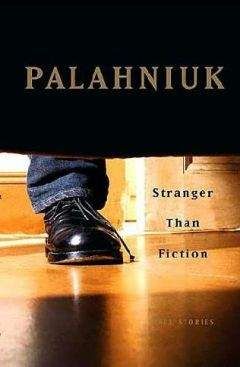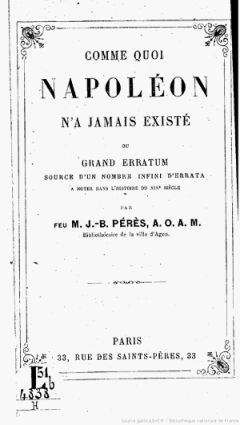Clive Cussler - Spartan Gold
“Is that the sun?” Remi said.
“You bet it is!”
The hull scraped over sand, slowed, then came to a gentle halt. Sam peered ahead. They’d run aground in another lagoon.
“Remi, I think we have arrived.”
He unlatched the dome and swung it open. Cool, salt-tinged air rushed through the hatch. He draped his arms outside, letting them hang, then leaned his head back and let the sun wash over his face.
He heard something off to his left, opened his eyes, and turned his head. Sitting on the sand ten feet away were a young couple wearing dive fins and scuba harnesses. Mouths agape and frozen in place, they stared at Sam. The man had a farmer’s tan, the woman white-blond hair—Midwesterners on a tropical adventure.
“Good morning,” Sam said. “Doing a little cave diving, I see.”
The couple nodded in unison, saying nothing.
“Be careful you don’t get lost in there,” Sam offered. “It can be a little tricky getting back out. By the way, what year is it?”
“Leave the nice people alone, Sam,” Remi whispered from the back.
CHAPTER 21
Heaven,” Remi murmured. “Absolute heaven.”
True to his word, upon returning to their Four Seasons villa, Sam had, after they’d shared a long hot shower, ordered first a sumptuous lunch of seafood salad, hot sourdough bread, and a tropical fruit bowl, then a pair of masseuses, who’d spent an hour giving them a hot stone massage before moving to deep-tissue Swedish. Sam and Remi lay side by side on the veranda, the sheer curtains billowing around them in a light tropical breeze. Down the beach, the breakers gently washed in and out, nature’s own lullaby.
Sam, hovering on the edge of sleep, simply muttered, “This is living.”
The surprised couple they’d encountered upon their exit from the cave had in fact been Midwesterners—Mike and Sarah, from Minnesota and on their honeymoon. After three tries, they’d answered Sam’s “Where are we?” question: on Rum Cay’s northern coast between Junkanoo Rock and Liberty Rock. They had, by Sam’s calculation, traveled some nine miles along the underground river.
Mike and Sarah had graciously offered to give them a ride—and a tow to the mini sub, to which Sam had grown quite attached—down the coast in their rented boat. Forty-two hours after first touching down at Rum Cay, Sam and Remi were back at their landing beach. Their host, the mysterious beachcomber, was nowhere to be seen, so they muscled the sub into the undergrowth and left a note on the hut’s wall: Please keep an eye on this. We’ll be back for it. Sam had no idea exactly what he had planned, but it seemed wrong to simply abandon it.
They then climbed aboard the Bonanza and headed for the main island and their hotel.
Massages complete, Sam and Remi lay still for a while, dozing, then got up and went back inside. Having already given Selma a “We’re okay” text message, Sam now called her and put her on speakerphone. He gave her a quick rundown of their cave odyssey.
“Well, no one can accuse the Fargos of taking mundane vacations,” Selma replied. “I may have an answer to one mystery—why it was Kholkov who came after you. Rube called: Grigoriy Arkhipov was found dead in a Yalta parking lot; his hands and feet were missing. Amputation by shotgun. Rube told me to—”
“Tell us to be careful,” Sam finished. “We are.”
“The question is, how did Kholkov find you?”
“We’ve been wondering that ourselves. Did you check our—”
“No credit checks on the account you used, and all our computers here are firewalled, so I doubt they got your itinerary that way. Same with your passport records; the government is tight with those.”
Remi said, “That leaves airlines or . . .”
“Some lead they have that we don’t,” Sam finished. “But that begs the question, why hadn’t they already raided the caves?”
“I’ll keep working on it,” Selma said, “but I don’t think it came from our end.”
“Until we know, we’ll assume the worst and keep looking over our shoulders,” Remi said.
“Good. So, about this submarine . . .”
“The UM-77,” Sam offered.
“Right. You want me to get it back here?”
“We’d better,” Remi replied, “or Sam is going to pout.”
“It’s a piece of history,” he grumbled.
They’d agreed that once this was all over they would tell both the German and the Bahamian governments about the sub pens and let the two sort it out among themselves.
“And if no one wants it?” Remi had asked.
“We’ll put it above our mantel.”
Remi had groaned. “That’s what I was afraid of.”
Now, on the phone, Selma said, “I’ll work it out. Might take a few days, but I’ll get it back here. So: Kholkov got the bottle.”
“Afraid so. Any news for us?”
“Yes, in fact, a few things I think you’ll find interesting. Care to guess what else, besides the spitting beetle, is found only in the Tuscan Archipelago?”
Remi answered first. “Our black rose.”
“Right again. We’ll have to fill in the timeline, but it seems likely the ink was applied to the labels during Napoleon’s stay on Elba.”
“Or afterward with ink from there,” Sam added. “Either way, it’s another piece in the puzzle.”
“Well, here’s another one,” Selma said. “Our bottle appears to be something of an onion wrapped in a riddle. The leather label is not one piece, but two layers pressed together. I managed to peel away the top layer without causing any damage.”
“And?”
“There’s no ink present, but more etchings—a grid of symbols, eight across and four down for a total of thirty-two.”
“What kind of symbols?”
“You name it. Everything from alchemy to Cyrillic to astrology and everything in between. My guess: They’re customized shape codes with no connection to their origin. Sam, you’re probably familiar with shape code.”
He was. During his training at the CIA’s Camp Perry, they’d spent three days on cryptographic history. “It’s essentially a substitution cipher,” he explained to Remi. He grabbed a pad and pen from the nightstand and quickly sketched three symbols:
Sam said, “Now suppose the first symbol represents the letter c; the second, a; the third, t.”
“Cat,” Remi said. “Seems pretty simplistic.”
“It is, in a sense, but in another sense it’s a virtually unbreakable code. The military uses a version of it, something called a one-time pad. The theory is this: Two people have an encoding/decoding book. One sends a message using shape codes, the other deciphers it by substituting letters for shapes. Without a book, all you’ve got is random symbols. To anyone else, they’re meaningless.”
“And we don’t have a book,” Remi said.
“Nope. Selma, can you send us—”
“On the way as we speak. It’s not the original picture I took of the label, but Wendy used a vector drawing program to re-create some of the symbols. This’ll be just a sample.”
A moment later Sam’s e-mail beeped and he called up the image:
“As for decoding it, I might have an idea about that—at least a place to start,” Selma said. “You remember the mystery man, ‘the Major’ who hired the smuggler, Arienne, to sail to Saint Helena?”
“Of course,” Remi said.
“I think I know who the Major is. I ran across an obscure German biography of Napoleon written in the 1840s. In 1779, when Napoleon was nine, he was sent to a French military school, Brienne-le-Château, near Troyes. There he met a boy named Arnaud Laurent and they became friends—all through École Royale Militaire college, then on to artillery school, and so on, all the way to Waterloo. According to the author, up until the mid 1790s, just before the First Italian Campaign, Laurent had been a step ahead of Napoleon in rank. It was said that in private or in close company Napoleon jokingly called Laurent ‘the Major.’ Napoleon had several confidants over the years, but none as close as Laurent.”
“Is there an estate?” Sam asked. “An Arnaud Laurent library, by chance?”
“No such luck. There’s not much out there on Laurent, but from what I gather, when he died in 1825, just four years after Napoleon, he was buried with what one article referred to as ‘his most prized possession.’ ”
“Which, with any luck, will be a handy-dandy decoder ring,” Sam said.
“Or book,” Remi added. “Selma, where’s he buried?”
“After his army was routed at Waterloo, Napoleon’s surrender was accepted aboard the HMS Bellerophon, along with Napoleon’s staff, which I’m guessing included Laurent, who was at the time his chief military adviser. Afterward the Bellerophon sailed to Plymouth, where after a two-week wait Napoleon was transferred to the HMS Northumberland—alone, with no staff—for the final voyage to Saint Helena. When Laurent died, his widow, Marie, asked the British for permission to have him buried on Saint Helena next to Napoleon, but they refused, so she did what she thought was next best thing: She had him laid to rest on Elba.”
“Strange,” Remi said.
“It’s poetic,” Sam replied. “Laurent’s general, his best friend, had died in exile and been buried in exile. His widow had chosen a spot of . . .” Sam searched for the right word. “Symbolic solidarity.”
Remi tilted her head at her husband. “That’s beautiful, Sam.”
“I have my moments. Selma, Napoleon’s remains . . . weren’t they moved from Saint Helena?”
“They were. Interesting story itself, really. In 1830 the Bourbons, who retook the throne after Napoleon’s defeat at Waterloo, were themselves overthrown by the Orléans dynasty. They were a little more nostalgic over Napoleon, so they petitioned the British for permission to bring him home. After seven years of wrangling, the Brits agreed and the remains were fetched from Saint Helena and returned to Paris. His official grave is under the dome of Les Invalides.
“Laurent’s grave is still on Elba—it’s a crypt, actually. The trick is, how do you handle it? I assume you’d prefer to avoid breaking in and playing tomb raiders.”
“Ideally,” Sam said.
“Then you’ve got to get permission. And as luck would have it, Laurent has a granddaughter, five or six times removed, living in Monaco.”
“Ah, Monaco in the spring,” Sam murmured. “How can we say no?”
“We can’t,” Remi chimed in.
CHAPTER 22
PRINCIPALITY OF MONACO, FRENCH RIVIERA
Sam pulled their rented olive green Porsche Cayenne SUV down the lilac-lined driveway and stopped before a four-story, white stucco terra-cotta-roofed villa overlooking the waters off Point de la Veille.
As it turned out, Arnaud Laurent’s distant granddaughter, Yvette Fournier-Desmarais, was embarrassingly wealthy, having inherited her late husband’s interests in a number of Monaco businesses, including a half dozen beach resorts and motor sporting clubs. According to the gossip rags she was, at age fifty-five, Monaco’s most eligible bachelorette and since her husband’s death fifteen years earlier had been courted by an impressive collection of Europe’s jet set, from princes to celebrities to captains of industry. She’d dated all of them, but none for longer than four months, and was rumored to have turned down dozens of marriage proposals. She lived alone in her villa with a modest staff and a Scottish deerhound named Henri.
Surprisingly, Sam and Remi had had little trouble arranging a meeting, first presenting their credentials and request to Ms. Fournier-Desmarais’s lawyer in Nice, who in turn agreed to contact his client. She’d e-mailed them directly within a day and insisted they come immediately.
They climbed out of the Porsche and walked into the front courtyard and along a path between a pair of bubbling fountains to the front door, twin slabs of mahogany and stained glass that rose four feet above their heads. Sam pressed the button on the wall and a soft chime sounded from within.
“ ‘A Marcia de Muneghu,’ ” Remi said.
“What?”
“The doorbell chime—it’s ‘A Marcia de Muneghu.’ The March of Monaco. It’s the national anthem here.”
Sam smiled. “Read some guidebooks on the plane, did we?”
“When in Rome . . .”
The door opened, revealing a rail-thin middle-aged man in matching navy blue slacks and polo shirt. “Mr. and Mrs. Fargo, yes?” His accent was British. He didn’t wait for a reply, but merely stepped aside and tipped his chin.
They stepped into the foyer, which was simply but tastefully done: light gray Egyptian slate on the floor and a soft Mediterranean blue plaster on the walls. A silver-framed mirror sat above a nineteenth-century English Sheraton painted demi-lune console table.
“My name is Langdon,” the man said, shutting the door. “The mistress is on the veranda. This way, please.”
They followed him down the hall, past the formal rooms to the private half of the house, then out a pair of French doors onto a mul titiered deck made from polished burled walnut.
“You’ll find her there,” Langdon said, gesturing up a set of stairs that wound along the villa’s outer wall. “If you’ll excuse me . . .” Langdon turned and disappeared back through the French doors.
“My God, look at that view,” Remi said, walking to the railing. Sam joined her. Below an embankment of rock outcrops, palm trees, and flowering tropical shrubs lay the breadth of the Mediterranean, a carpet of indigo stretching beneath a cloudless sky.
A female voice called, “It’s a sight I never tire of either.”
They turned. A woman in a plain white sundress and sunflower yellow broad-brimmed hat stood at the top of the steps. This was, they assumed, Yvette Fournier-Desmarais, but neither Sam nor Remi would have guessed her to be older than forty. Beneath the hat her face was tanned, but not baked, with barely perceptible laugh lines around a pair of hazel eyes.
“Sam and Remi, yes?” she asked, walking down the stairs, hand outstretched. “I’m Yvette. Thank you for coming.” Her English was excellent, with the slightest trace of a French accent.
They shook her hand in turn, then followed her up the stairs and around the back to an open-air sunroom draped in gauze curtains and appointed in teak chairs and chaise lounges. A large, sleek brown and black dog sitting in the shade beside one of the chairs started to rise upon seeing Sam and Remi, but sat back down again at his mistress’s soft, “Sit, Henri.” Once they were all settled, she said, “I’m not what you expected, am I?”



